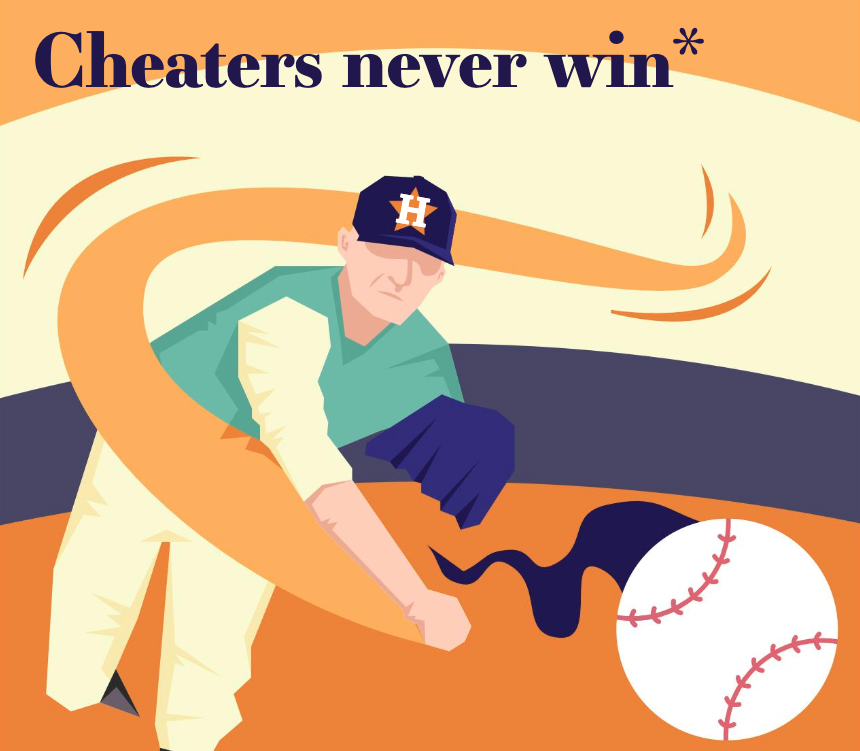
Most of the world focused on United States sprinter extraordinaire Carl Lewis, wondering if he could match the gold he delivered four years earlier at the 1984 Olympics in Los Angeles. Another sprinter, Jamaican-born Ben Johnson, running for the Canadians, had turned in some dazzling times and threatened to possibly knock off Lewis.
The gun sounded, and Johnson blasted off from his blocks, shooting to a huge lead and never looking back, claiming the win and a new world record. Few people could believe it, and the whispers of possible performance-enhancing drug use (back then we just called them steroids) began to grow.
Less than 24 hours later and after two samples tested positive for steroids, Johnson was stripped of his gold medal and the time was wiped from the record books. Lewis got his gold medal because he finished second in the race.
Johnson cheated. His punishment was losing the medal he had violated the rules to attain. For many in my generation that was our indoctrination into the dark side of cheating in sports. What few people now realize is that six of the eight men lining up for the 100-meter final later tested positive for banned substances during their track careers, including Lewis.
Performance enhancing drugs, positive drug tests, banned medals and suspensions have become so commonplace in track and field that any new record is almost immediately met with doubt. As bad as track is, cycling is probably worse.
There is a long list of Tour de France winners, including multiple-time champion Lance Armstrong from the United States, who have had to relinquish their tour titles. All of these individuals were caught using performance-enhancing substances. Just like Johnson and most of the others from that 100-meter final, they found a way to cheat. And in the end, it cost them the very thing they cheated to achieve.
Sports history is rife with individuals, teams, organizations, even sanctioning bodies, countries and others bending and often breaking rules to win. Russia had numerous athletes banned from the 2016 Summer Olympics after the country and its sports system were implicated in massive state-sponsored cheating. Many Russian athletes will most likely be banned from the 2020 Summer Olympics as well.
Several years ago, a high school football team I covered in South Florida had one of the weirdest episodes of cheating I’ve witnessed. One of the team’s players turned out to be a 33-year-old man posing as a high schooler. The individual was a kicker for the football team and only got on the field once. He kicked an extra point in a meaningless blow-out game. He also played soccer and starred for the team. The Florida High School Activities Association banned the high school from playing soccer the next year. They also imposed a one-year postseason ban on the football team. That ban robbed one of the greatest high school football teams I’ve ever seen from a shot at a state title. But they did use an ineligible player, although it was iffy as to who exactly knew about the kid or, in this case, full-grown man.
Pete Rose bet on baseball, got caught, lied about it and is now ineligible for induction into the Baseball Hall of Fame. While he didn’t exactly cheat, he did break the rules and now pays the price.
I watched from the sidelines in 1993 as my beloved Auburn Tigers rolled to a perfect 11-0 record. But impermissible benefits to players a few years earlier had put Auburn on probation, not allowing them to play on television that season or participate in the postseason.
I could actually keep this list going for a long time, but hopefully I’ve made my point. Enter the Houston Astros and an interesting case for Major League Baseball. The Astros used technology to steal other teams’ pitching signs and broadcast to their hitters via various methods what pitches were coming.
The Astros have been one of the better teams in baseball the past couple of years, winning the 2017 World Series and falling in the 2019 World Series. While early reports of the possible sign-stealing scandal brought nothing but incredulity from Astros managers and players, video as well as unnamed sources indicated that Houston cheated.
Stealing signs is a time-honored tradition in baseball and can be found at every level. The difference is that the Astros used video cameras, photography and other electronic methods and then devised a system to relay to their hitters what pitches were coming.
After what was termed a lengthy investigation, MLB Commissioner Rob Manfred suspended the Astros’ manager and general manager for a year, fined the team $5 million and stripped them of some draft picks. The Astros then fired both the manager and general manager. A few Astros players appeared at a press conference and offered up one of the worst sets of apologies known to man. The players showed no remorse and did nothing more than read prepared statements probably written by the Astros’ public relations squad.
Fans were already incensed over the Astros’ punishment. The fine is the largest MLB has ever handed out, and the loss of draft picks will hurt the team. But if baseball believed the sign-stealing scandal was this bad, why did the league not strip the Astros of the 2017 World Series Title? Or why didn’t some of the players heavily involved in the cheating scheme get a ban?
Manfred said the players were given immunity so that MLB could get the information needed. That’s fine. No issues with that move. However, MLB says the Astros cheated in 2017 and 2018 and they cheated in the 2017 postseason, which resulted in a World Series Title. The Astros get to keep the title and not one player from the team who cheated will be punished.
I don’t know whatever happened to the old adage of a cheater never wins and a winner never cheats, but in this case, it certainly fails to apply to the Astros. Maybe Houston would have won the title in 2017 without stealing signs. Of course, we’ll never know. The Houston players aren’t apologetic. Their owner says they were a great team in 2017 and would have won anyway. And MLB says the Astros cheated and slapped them on the hand.
The lesson for Johnson, Tour de France cheaters, Rose, that high school, Auburn, Russia and others caught cheating was harsh in the hopes it would help deter others. MLB’s punishment for the Astros wasn’t. The constant message sent to cheaters in most sports is that if you do it you will pay and lose the very thing you cheated to earn. This didn’t happen to the Astros, and the ramifications of this punishment or lack thereof could be very bad for baseball going forward.



